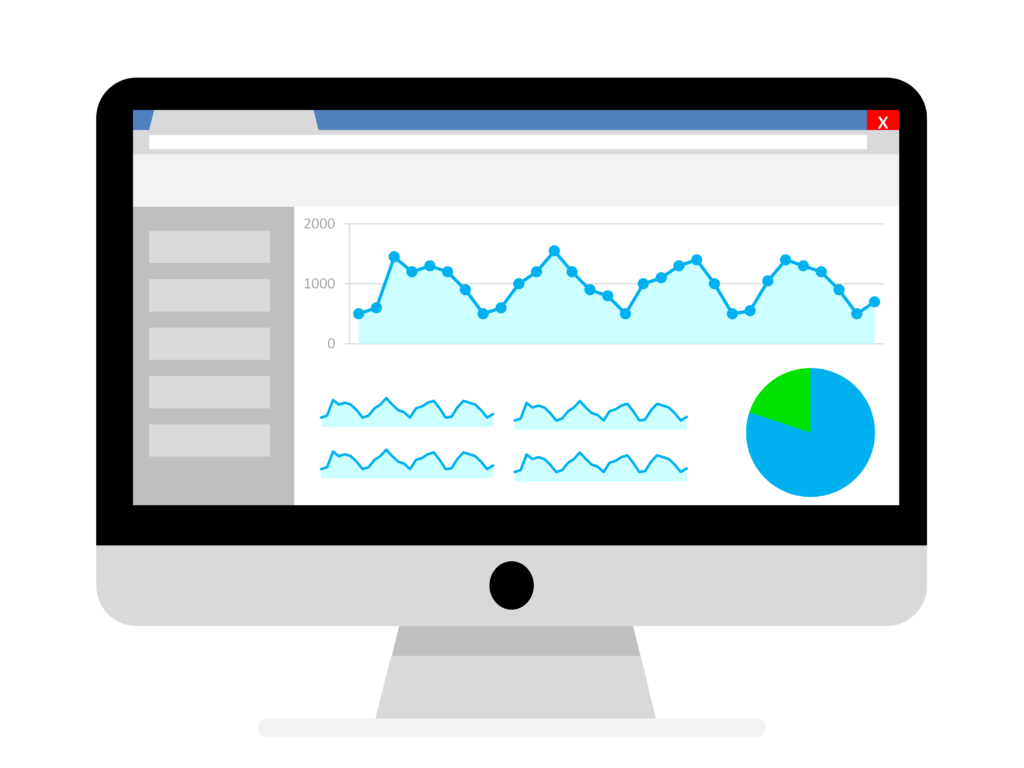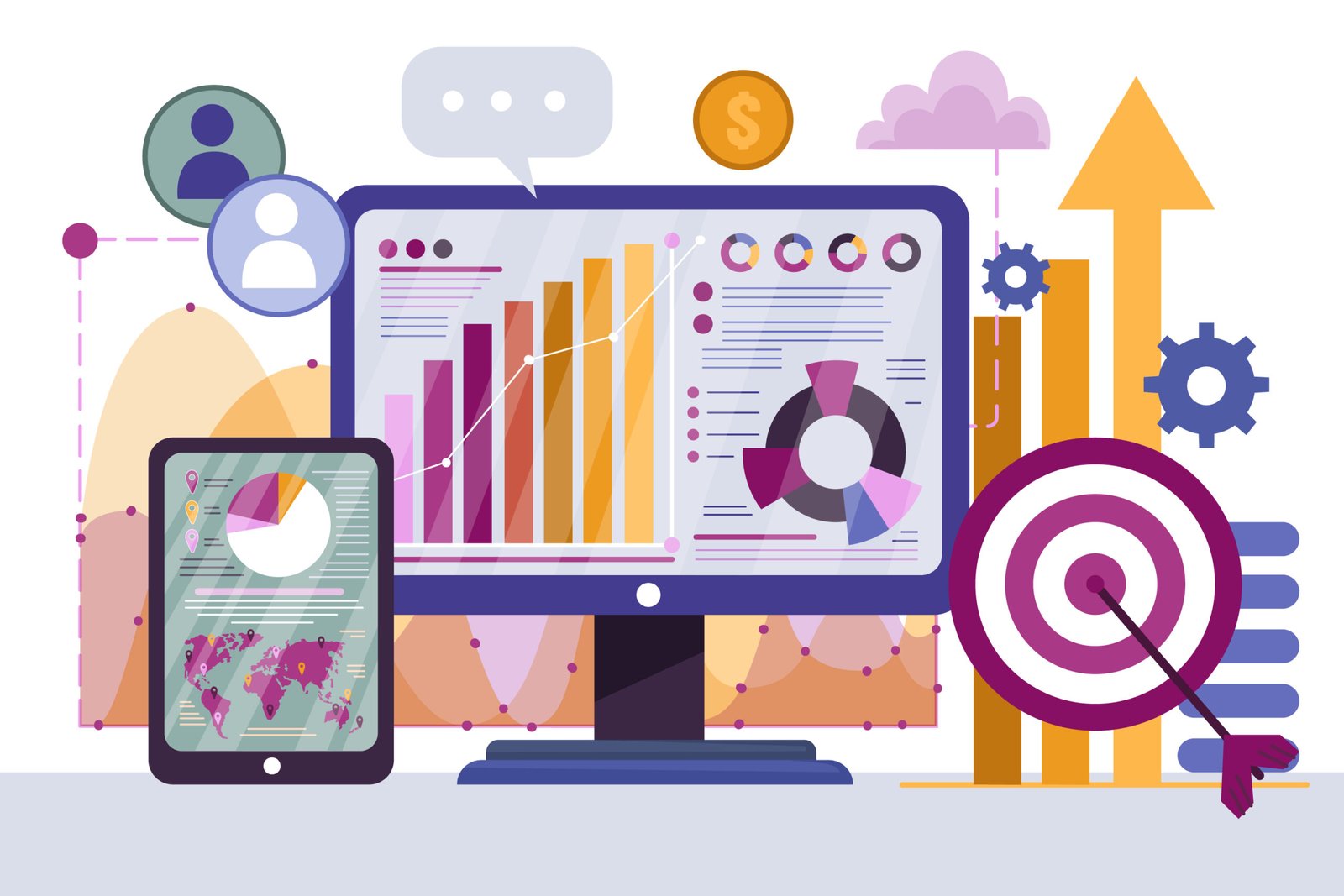In today’s digital age, businesses are increasingly relying on data to fuel their decision-making processes. Data-driven marketing is no longer just a buzzword; it has become the backbone of successful B2B marketing strategies. By harnessing the power of data, B2B companies are able to make more informed decisions, engage their target audience more effectively, and ultimately drive growth. In this blog, we’ll explore how data-driven marketing is revolutionizing the B2B landscape and why it’s essential for businesses to embrace this approach.
What is Data-Driven Marketing?
Data-driven marketing refers to the use of data to inform and optimize marketing strategies, campaigns, and customer interactions. Instead of relying on intuition or guesswork, businesses leverage data to understand consumer behavior, preferences, and trends. This data can come from a variety of sources, including website analytics, social media insights, CRM systems, and email marketing performance.
In B2B marketing, data-driven strategies allow companies to personalize their messaging, target the right audience, and measure the effectiveness of their campaigns in real time. With access to vast amounts of data, businesses can create highly targeted and customized marketing efforts that resonate with potential clients and drive measurable results.
The Importance of Data-Driven Marketing in B2B
The B2B marketing landscape is highly competitive, with businesses constantly seeking ways to differentiate themselves and gain a competitive edge. Data-driven marketing is crucial in this context because it provides the insights needed to make smarter decisions and allocate resources more effectively.
1. Enhanced Customer Insights
One of the primary benefits of data-driven marketing is the ability to gain deeper insights into your customers. In the B2B space, understanding your target audience is key to crafting effective marketing messages. By analyzing customer data, businesses can uncover patterns in behavior, preferences, and pain points. These insights enable companies to create more relevant content, personalized offers, and targeted campaigns.
For example, if you know that a particular segment of your audience tends to engage with certain types of content, you can tailor your marketing efforts to better align with their interests. Data-driven marketing helps you move beyond broad demographics and focus on the specific needs of your audience, leading to better engagement and conversion rates.
2. Improved Lead Generation and Qualification
In B2B marketing, generating high-quality leads is essential for business success. Data-driven marketing allows businesses to identify the most promising leads and focus their efforts on nurturing them. By analyzing customer behavior and interaction data, companies can assess which prospects are most likely to convert and prioritize their outreach accordingly.
For example, if a prospect has repeatedly visited your website and downloaded multiple pieces of content, this signals strong interest in your offerings. With data-driven marketing tools, businesses can score leads based on their level of engagement and tailor their follow-up strategies accordingly. This results in more efficient lead generation and higher conversion rates.
3. Personalized Marketing at Scale
Personalization is a key aspect of modern marketing, and data-driven marketing allows businesses to deliver highly personalized experiences to their audience at scale. By analyzing customer data, businesses can segment their audience into specific groups based on factors like industry, company size, and job role. This segmentation enables companies to create personalized messages that resonate with each group’s unique needs and challenges.
Personalized content and offers have been shown to significantly increase engagement and conversions. With data-driven marketing, businesses can automate the delivery of personalized messages across various channels, such as email, social media, and websites. This not only saves time but also ensures that the right message reaches the right person at the right time.

How Data-Driven Marketing Is Changing B2B Campaigns
As B2B businesses continue to adopt data-driven strategies, the way they approach marketing campaigns is undergoing a dramatic shift. Here are some key ways data is transforming B2B marketing campaigns:
1. Real-Time Analytics and Optimization
Data-driven marketing allows businesses to track the performance of their campaigns in real time. This means that marketers can monitor key metrics like website traffic, engagement, and conversion rates as they happen. With this data at their fingertips, businesses can quickly identify what’s working and what’s not, making it possible to optimize campaigns on the fly.
For example, if a particular email campaign is underperforming, marketers can use data to adjust the subject line, call to action, or timing of the emails to improve results. This level of agility allows businesses to continuously refine their marketing efforts, ensuring that they are always delivering the most effective campaigns.
2. Predictive Analytics for Future Campaigns
Another way data-driven marketing is revolutionizing B2B campaigns is through the use of predictive analytics. Predictive analytics involves using historical data and machine learning algorithms to forecast future outcomes. In B2B marketing, this could mean predicting which leads are most likely to convert, which customers are at risk of churning, or which marketing channels will be most effective in the future.
By leveraging predictive analytics, businesses can proactively plan their marketing strategies, allocate resources more efficiently, and identify opportunities before they arise. This gives them a significant advantage over competitors who rely on traditional, less data-driven approaches.
3. Omnichannel Marketing Integration
Today’s B2B buyers interact with companies across multiple channels, including websites, social media, email, and offline touchpoints. Data-driven marketing enables businesses to create a seamless omnichannel experience for their customers by integrating data from all these touchpoints.
With a unified view of customer interactions across channels, businesses can deliver a consistent and personalized experience. For instance, if a prospect engages with a company on social media, that interaction can be logged and used to inform future email marketing efforts. By connecting the dots between online and offline behaviors, data-driven marketing helps businesses create a more cohesive customer journey.

Tools and Technologies for Data-Driven Marketing in B2B
To fully leverage data-driven marketing, B2B companies need the right tools and technologies in place. There are several powerful platforms and software solutions that can help businesses collect, analyze, and act on data to optimize their marketing efforts.
1. Customer Relationship Management (CRM) Systems
CRM systems are essential for tracking customer interactions and managing relationships. Popular CRM platforms like Salesforce, HubSpot, and Zoho allow businesses to store valuable customer data and gain insights into how leads and clients are engaging with their brand. These systems can also be integrated with other marketing tools to provide a comprehensive view of the customer journey.
2. Marketing Automation Platforms
Marketing automation tools, such as Marketo, Pardot, and Mailchimp, enable businesses to automate and personalize marketing campaigns. These platforms allow businesses to segment their audience, send targeted emails, and track campaign performance—all based on data collected from various touchpoints.
3. Analytics and Reporting Tools
Google Analytics, Tableau, and other analytics tools are critical for measuring the success of marketing campaigns and understanding customer behavior. These tools provide insights into website traffic, user engagement, and conversion rates, helping businesses identify areas for improvement and make data-driven decisions.
The Future of Data-Driven Marketing in B2B
As technology continues to advance, the role of data in B2B marketing will only grow. We’re already seeing the rise of artificial intelligence (AI) and machine learning, which can analyze vast amounts of data to identify patterns and predict future behavior. In the coming years, B2B companies will increasingly rely on these technologies to automate and optimize their marketing efforts even further.
The future of data-driven marketing in B2B is bright, and businesses that embrace these tools and strategies will be well-positioned to stay ahead of the competition.
Conclusion: Embrace Data for B2B Success
Data-driven marketing has proven to be a game-changer in the B2B space. By leveraging data, businesses can gain valuable insights into their customers, personalize their marketing efforts, and optimize their campaigns for maximum impact. As the B2B marketing landscape continues to evolve, those who embrace data-driven strategies will be best positioned to succeed. Whether through improved lead generation, better customer insights, or more personalized marketing, data is the key to unlocking the future of B2B marketing.
If you’re not already utilizing data-driven marketing in your business, now is the time to start. With the right tools, strategies, and mindset, you can harness the power of data to take your B2B marketing efforts to the next level.





